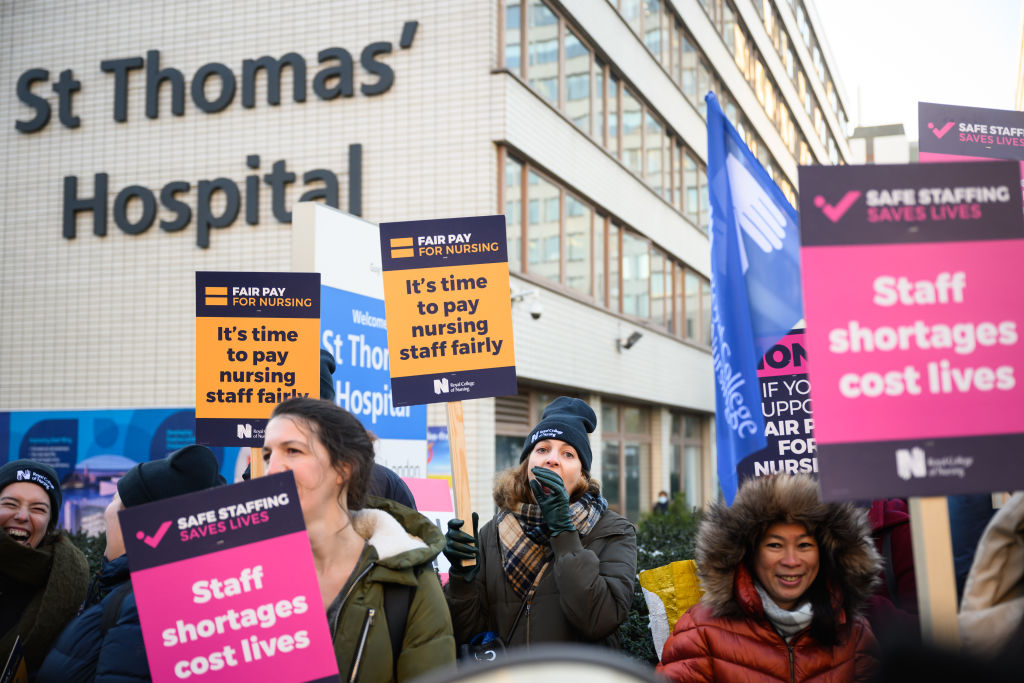The winter of discontent continues as nurses across England, Wales and Northern Ireland embark on a second day of strike action, with the threat of more to follow in the new year if an agreement can’t be found on pay. Adding to the government’s problems, tomorrow ambulance workers are set to walk out.
While it’s the practical ramifications of the ambulance strike that worries senior figures in government the most, it’s all adding up to a big political headache for Rishi Sunak. In an interview with the Daily Mail, Sunak has insisted he won’t give in to pay demands – arguing it would be damaging to the economy and therefore the wrong thing to do: ‘I’m going to do what I think is right for the long-term interests of the country – combating inflation.’ Instead, he has hinted that if the strikes are called off there could be a more generous pay offer next year.
In the face of mass strikes from various groups – ranging from rail and bus workers to university staff – the Prime Minister is attempting to win the reasonableness argument. At all times, he has tried to present his government as showing reason by accepting the recommendations of the pay review body. In contrast, ministers are trying to paint the union leaders as militant and unreasonable. When RMT leader Mick Lynch lost his temper recently over the BBC’s coverage of the strike, it was viewed in government as a sign they could be making progress.
However, the problem Sunak faces is that while this tactic might work with some industries, public support is higher when it comes to nurses’ pay. As one senior Labour figure puts it: ‘It’s one thing taking on Mick Lynch as unreasonable, it’s another suggesting nurses are the problem’. The nursing unions, too, have hinted that they could be willing to move away from the initial demand of a 19 per cent pay rise. RNC general secretary Pat Cullen has said industrial action can be come to an end of the government moves on the current offer.
A YouGov poll today shows that when it comes to who to blame for the strikes, opinion is generally divided. On rail workers, 49 per cent surveyed oppose the action while 43 per cent support. Brits are also divided on who to blame for the strikes in all cases except nurses and ambulance staff where a majority point the finger of blame at the government. The concern in Downing Street is that giving in to one group on pay would open the door to pay rises for other groups too.
Yet if the government fails to find a way to avoid further industrial action in the health service, current signs suggest voters are more likely to blame the government than striking nurses. So far only a handful of Tory MPs have spoken out against the government position, but that could start to change if the public mood turns further.







Comments